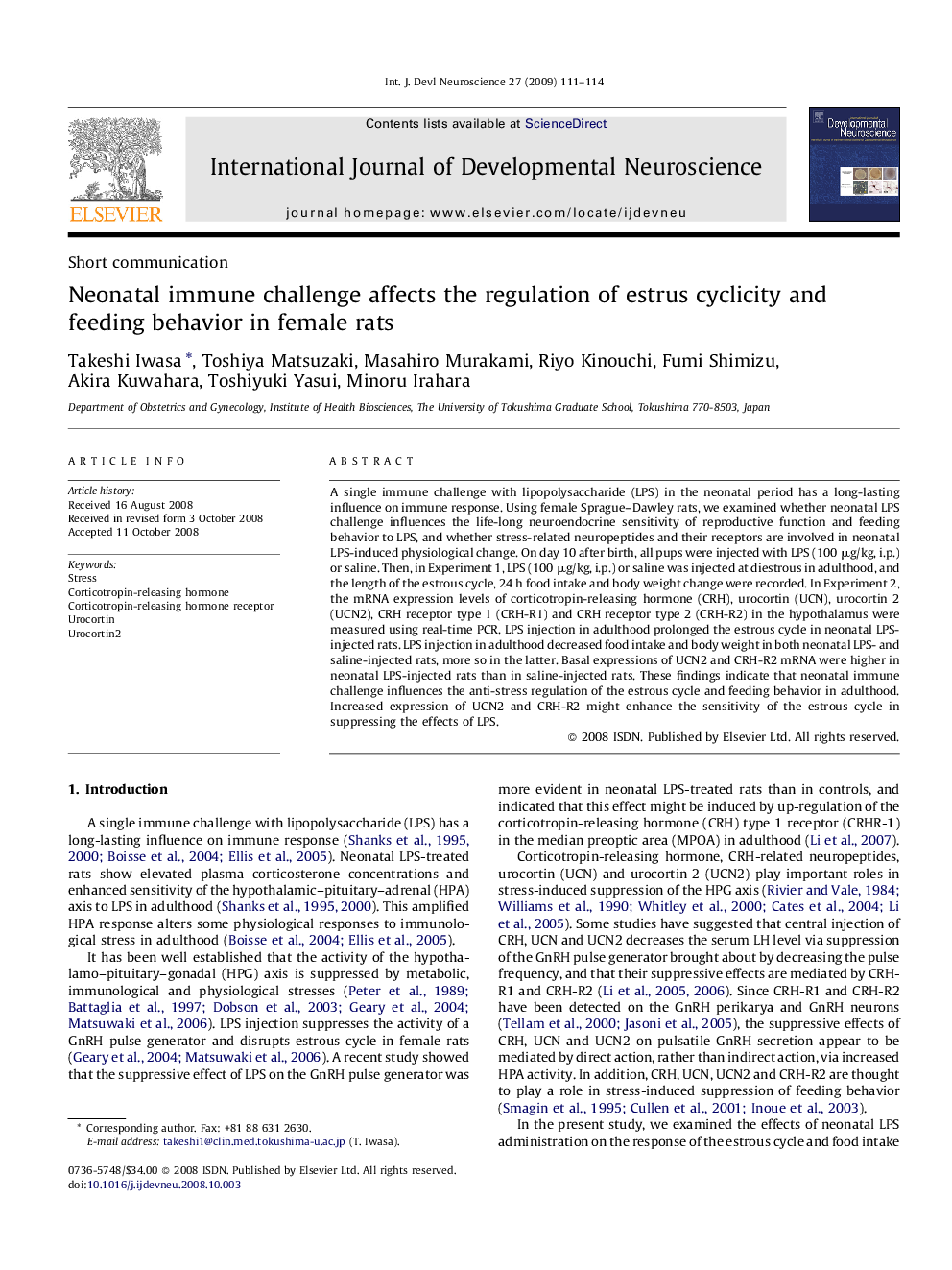| Article ID | Journal | Published Year | Pages | File Type |
|---|---|---|---|---|
| 2787019 | International Journal of Developmental Neuroscience | 2009 | 4 Pages |
A single immune challenge with lipopolysaccharide (LPS) in the neonatal period has a long-lasting influence on immune response. Using female Sprague–Dawley rats, we examined whether neonatal LPS challenge influences the life-long neuroendocrine sensitivity of reproductive function and feeding behavior to LPS, and whether stress-related neuropeptides and their receptors are involved in neonatal LPS-induced physiological change. On day 10 after birth, all pups were injected with LPS (100 μg/kg, i.p.) or saline. Then, in Experiment 1, LPS (100 μg/kg, i.p.) or saline was injected at diestrous in adulthood, and the length of the estrous cycle, 24 h food intake and body weight change were recorded. In Experiment 2, the mRNA expression levels of corticotropin-releasing hormone (CRH), urocortin (UCN), urocortin 2 (UCN2), CRH receptor type 1 (CRH-R1) and CRH receptor type 2 (CRH-R2) in the hypothalamus were measured using real-time PCR. LPS injection in adulthood prolonged the estrous cycle in neonatal LPS-injected rats. LPS injection in adulthood decreased food intake and body weight in both neonatal LPS- and saline-injected rats, more so in the latter. Basal expressions of UCN2 and CRH-R2 mRNA were higher in neonatal LPS-injected rats than in saline-injected rats. These findings indicate that neonatal immune challenge influences the anti-stress regulation of the estrous cycle and feeding behavior in adulthood. Increased expression of UCN2 and CRH-R2 might enhance the sensitivity of the estrous cycle in suppressing the effects of LPS.
